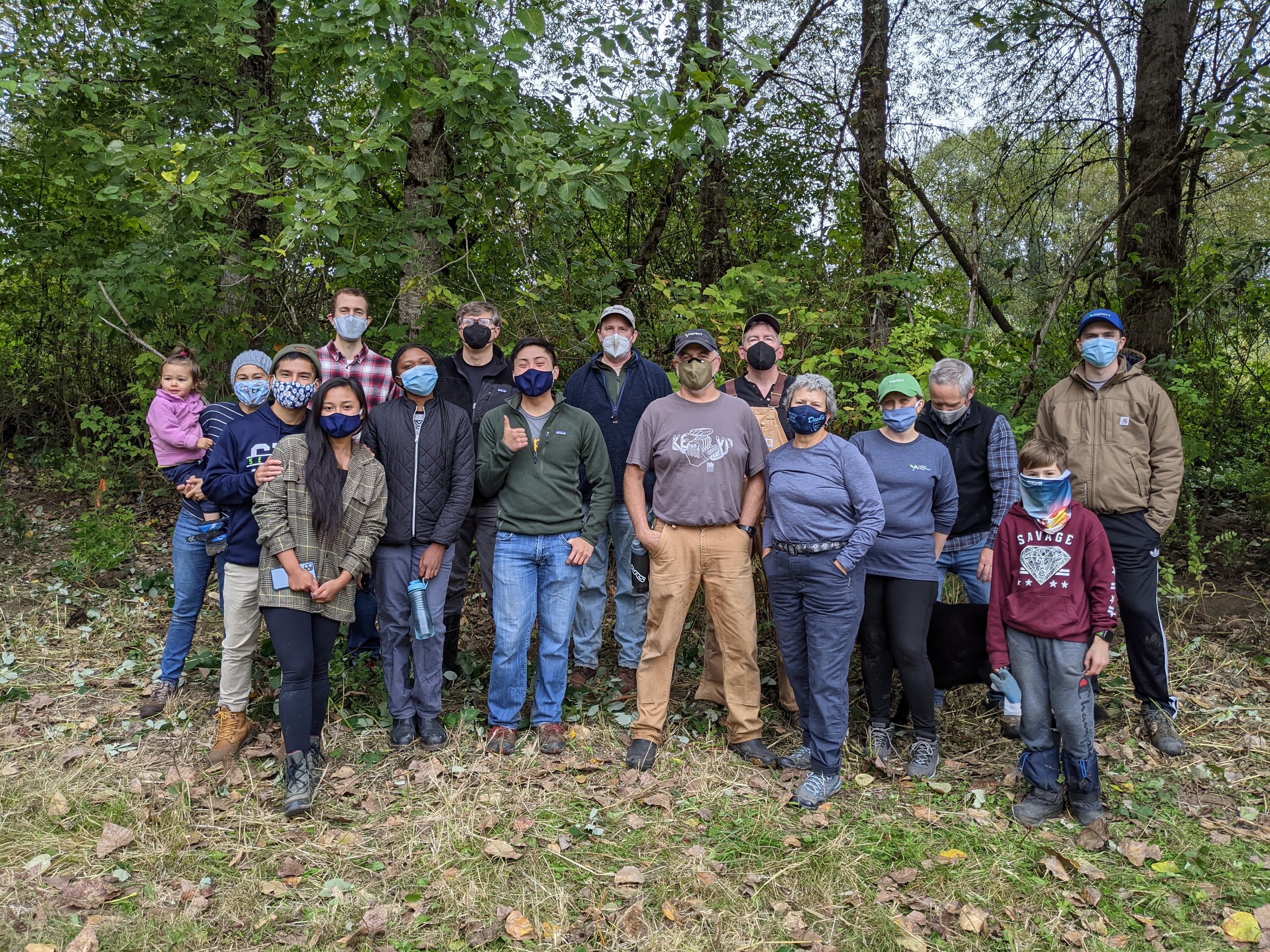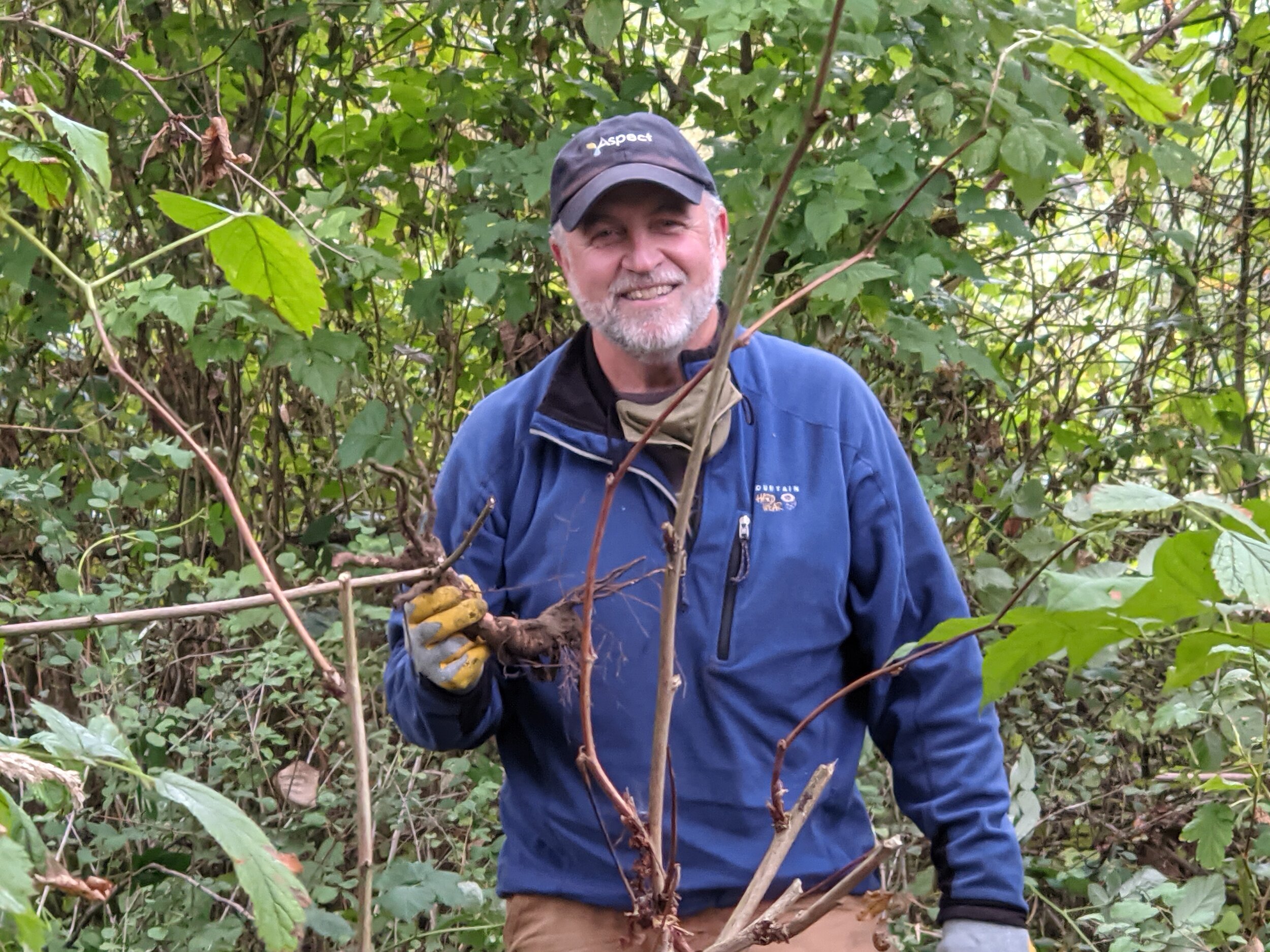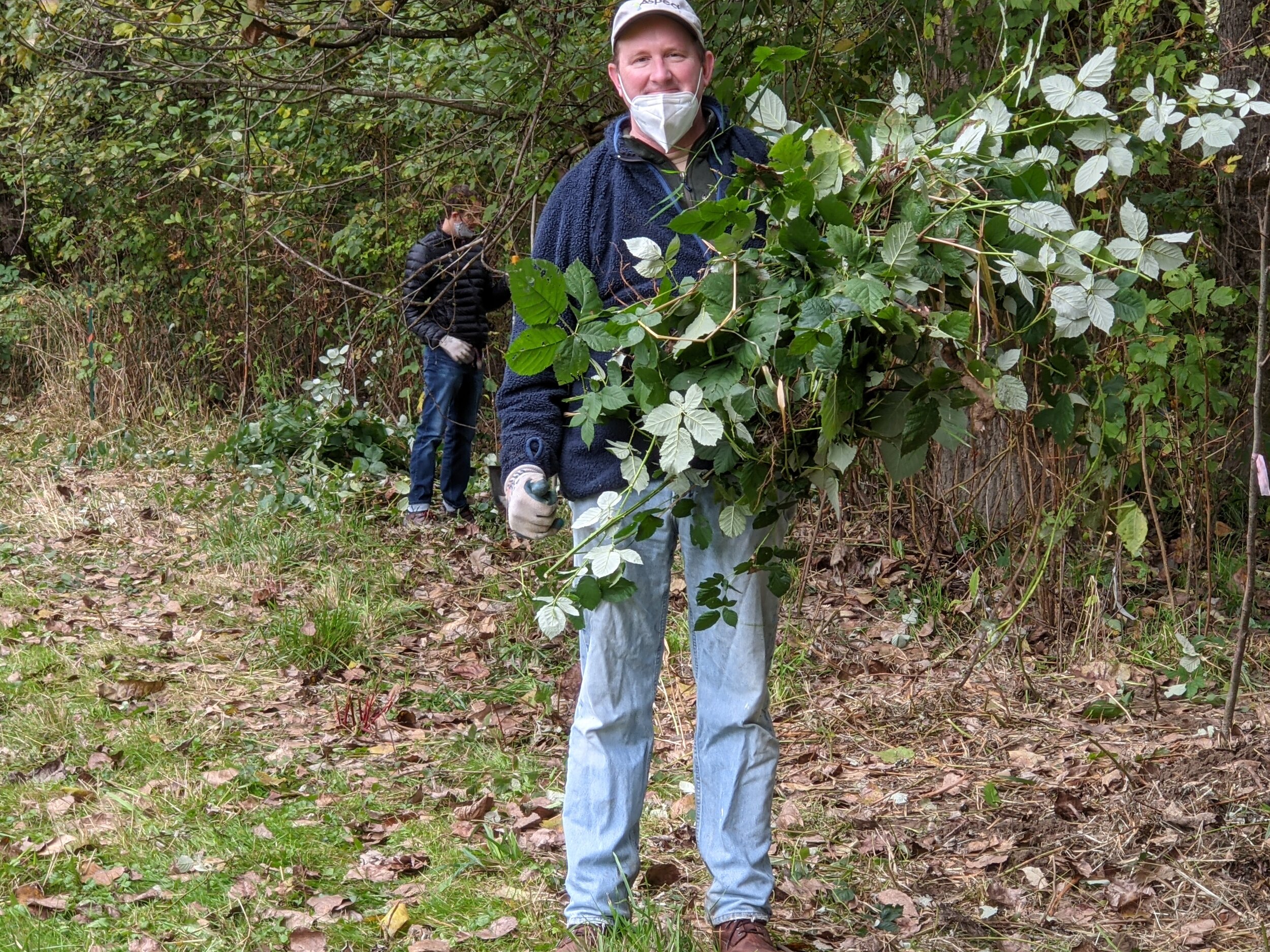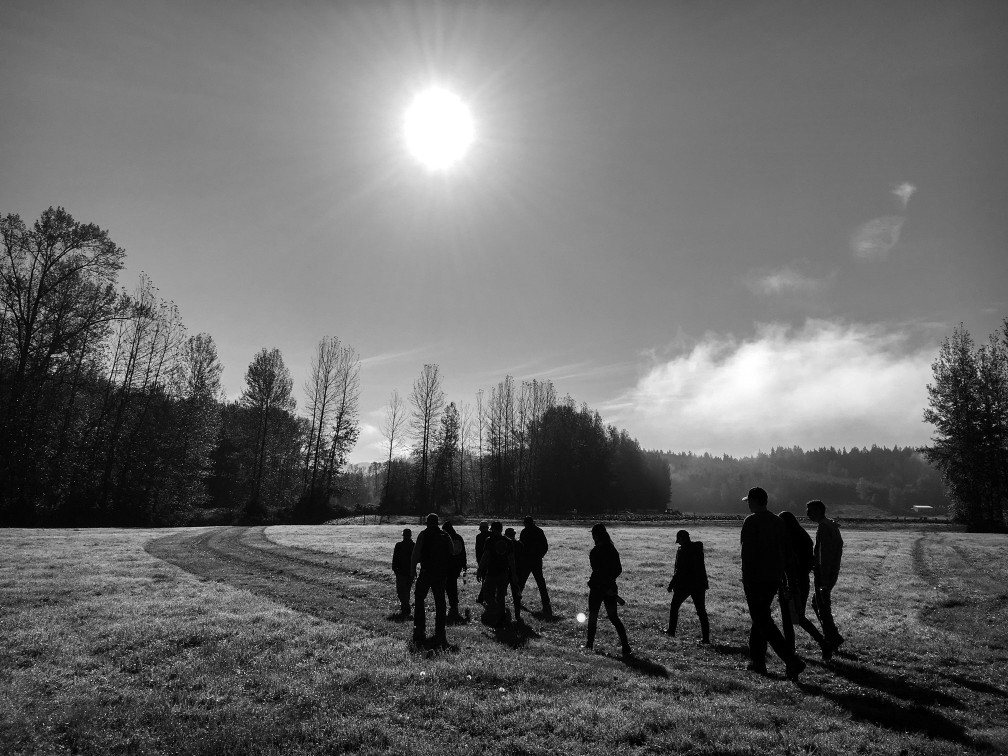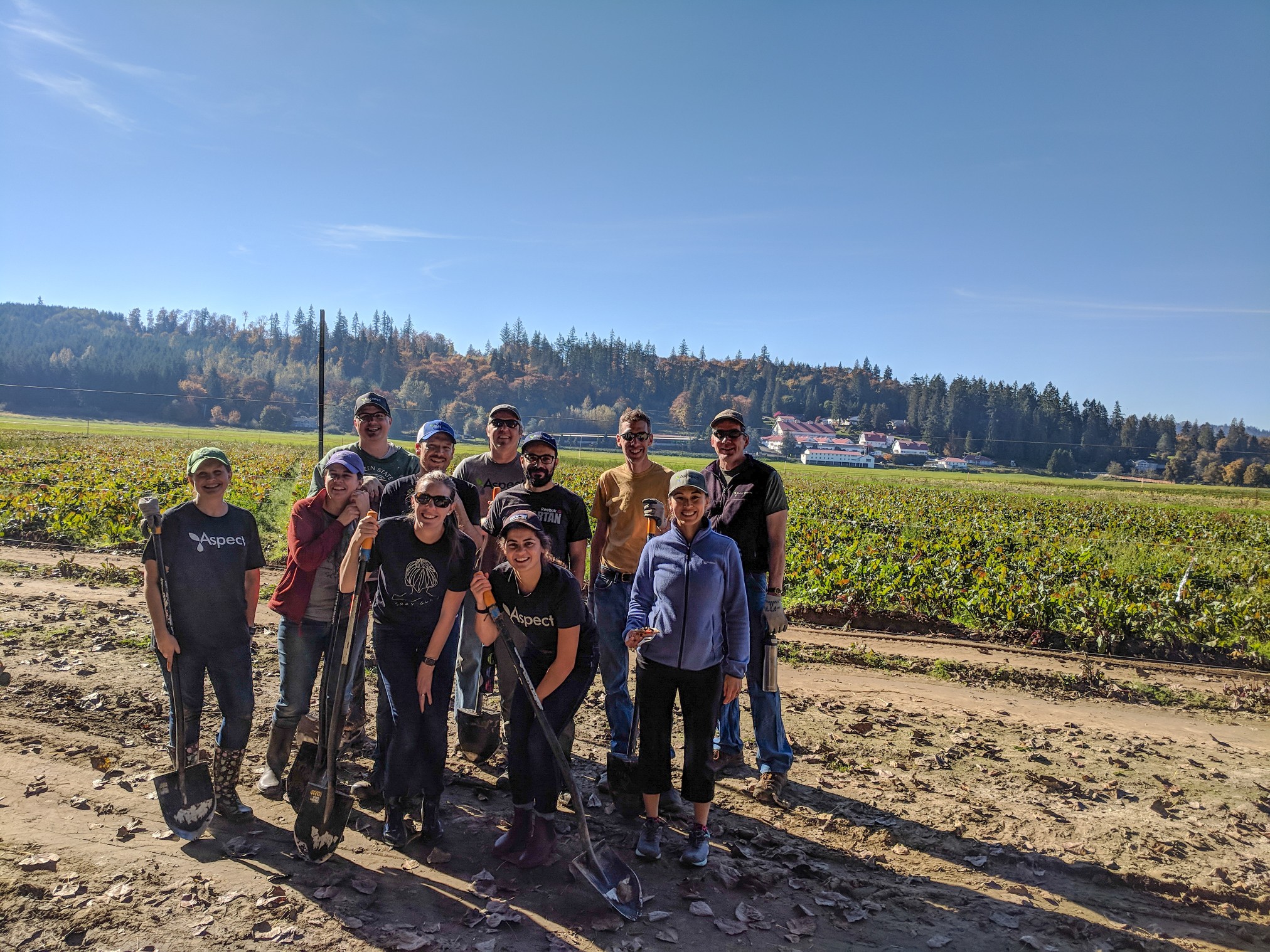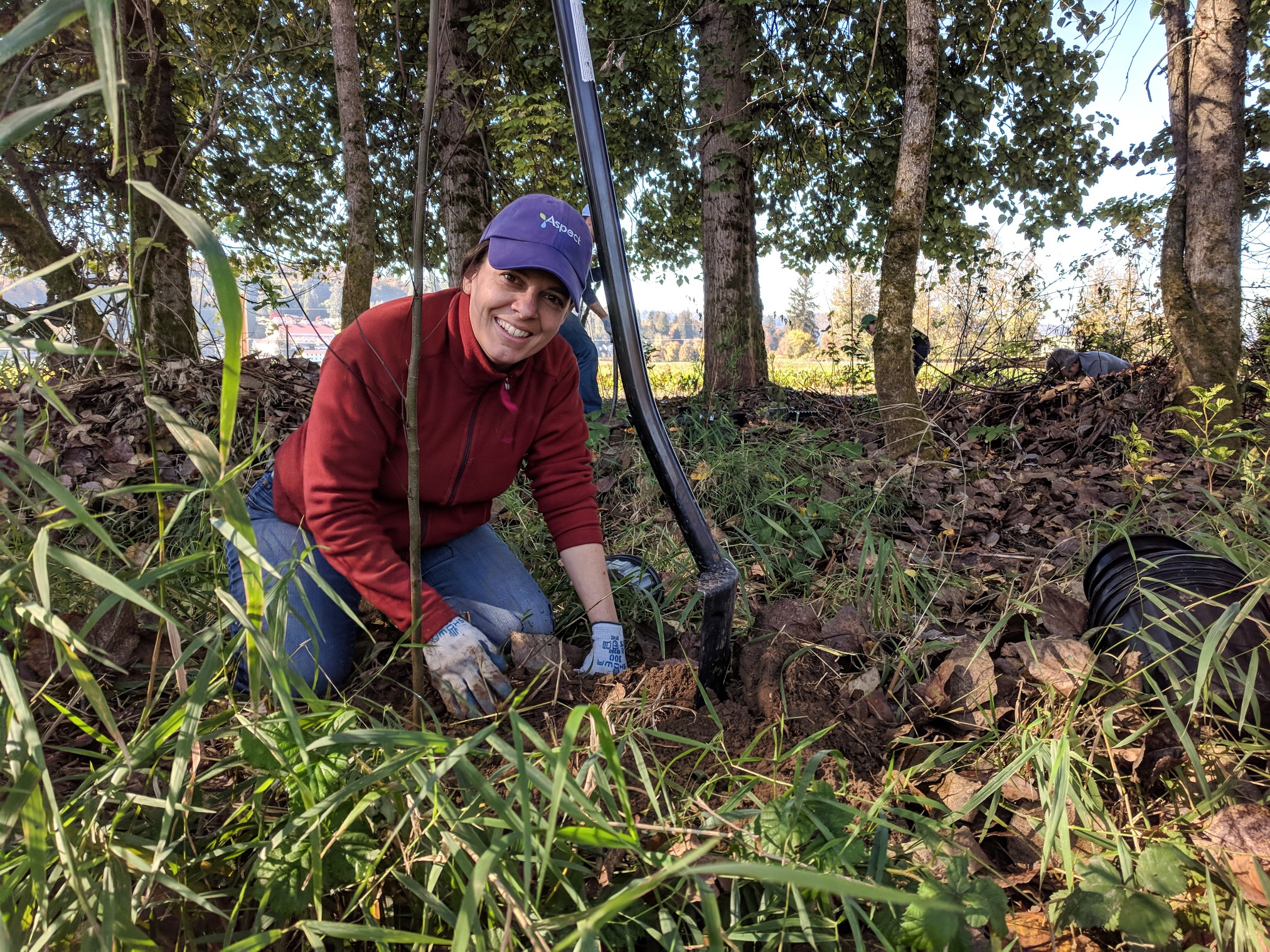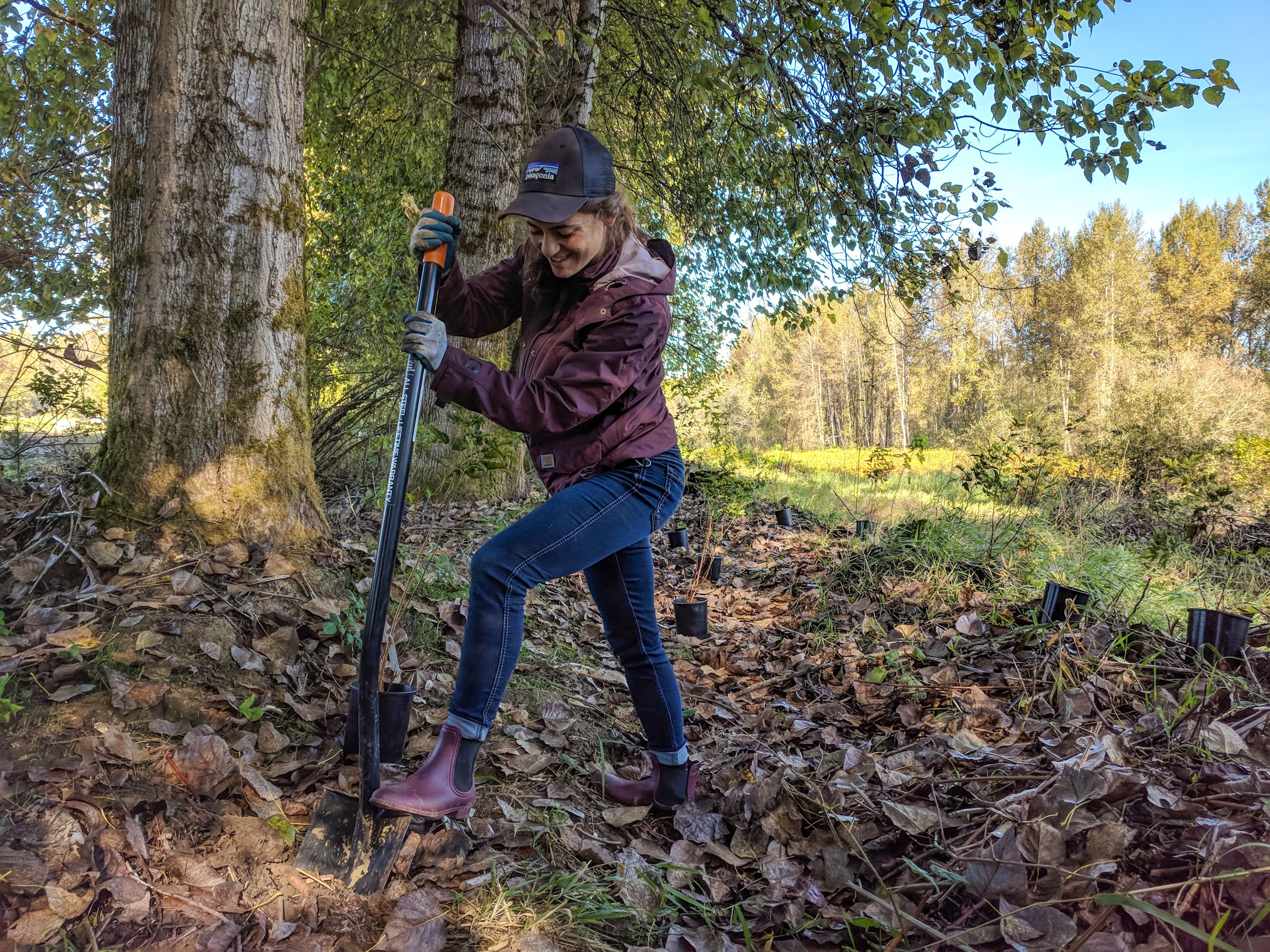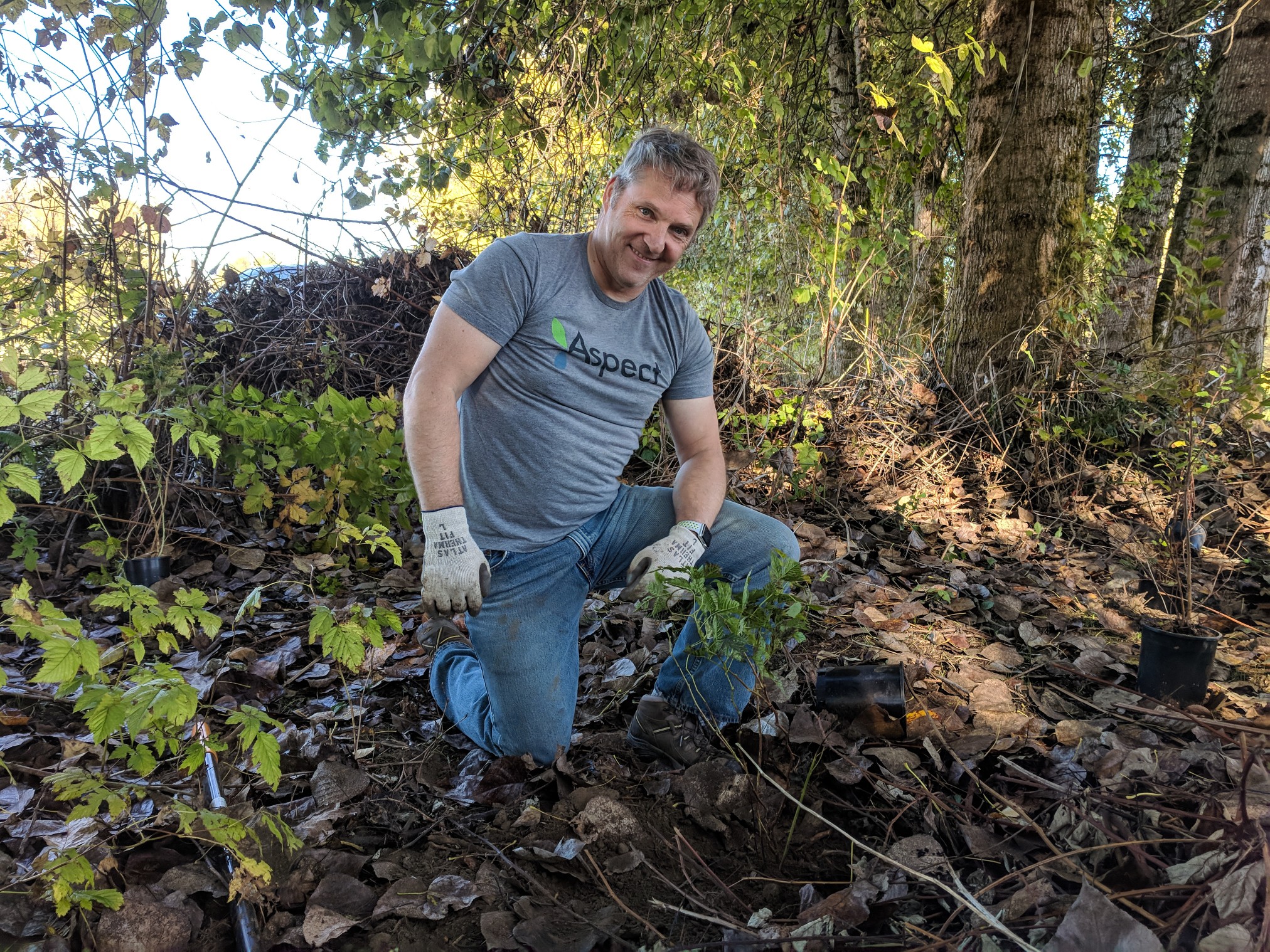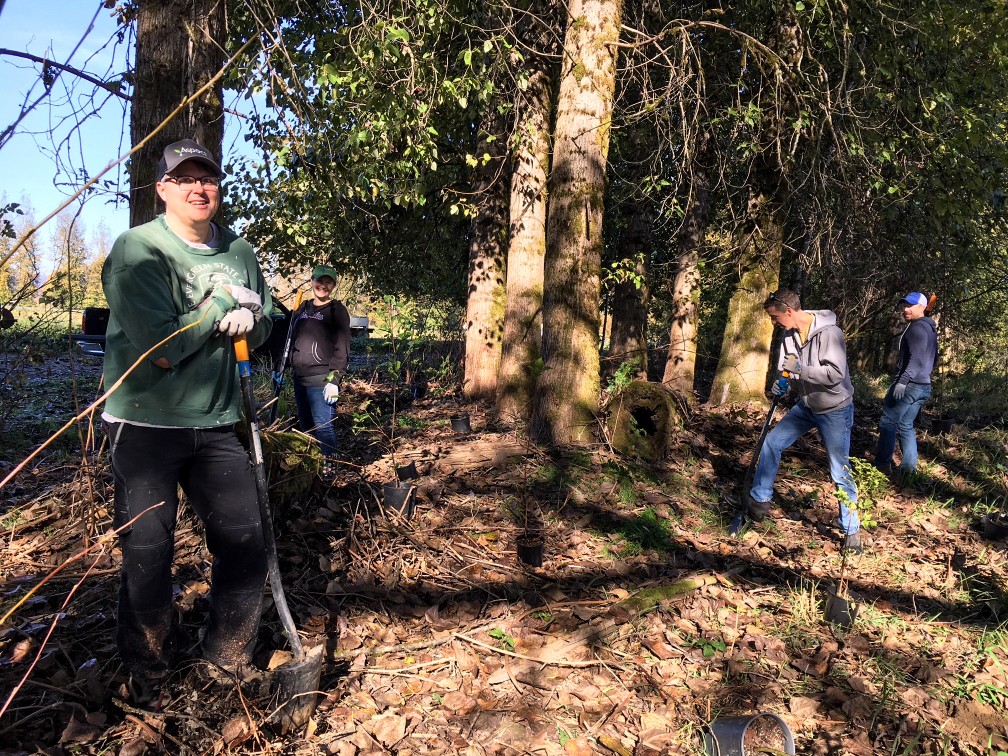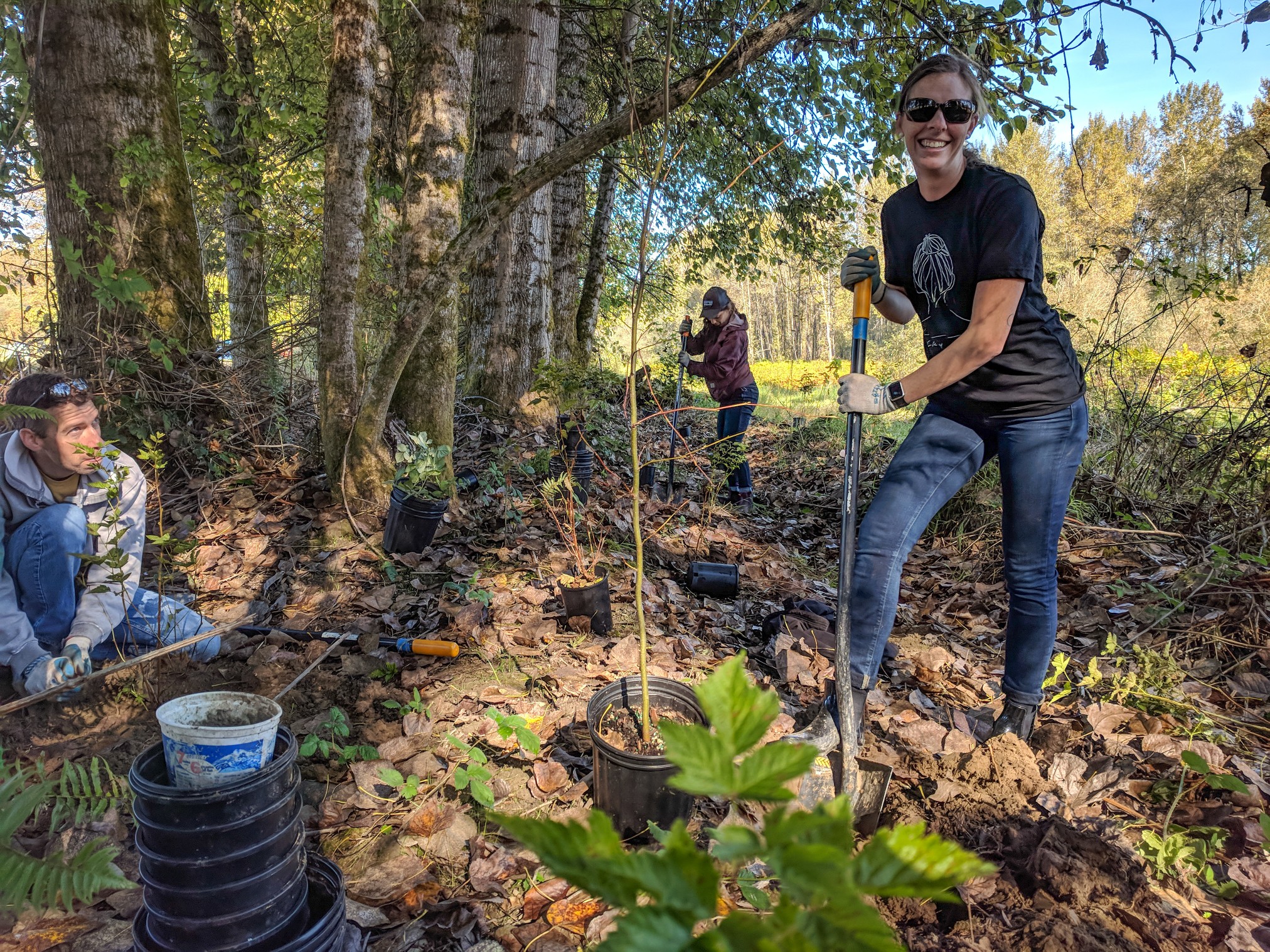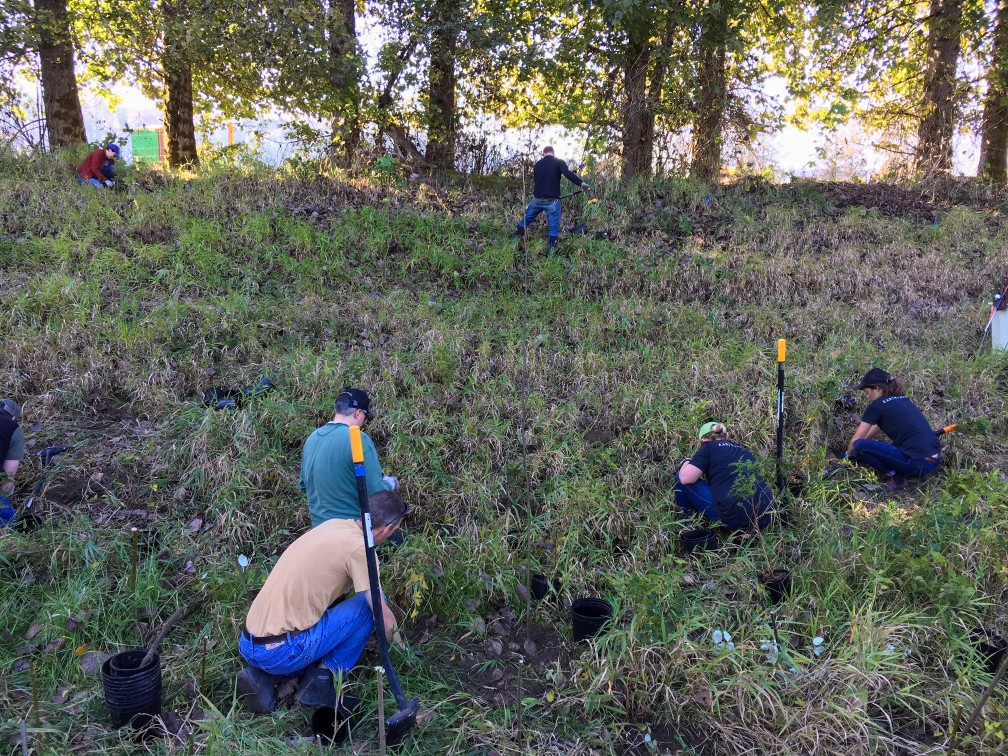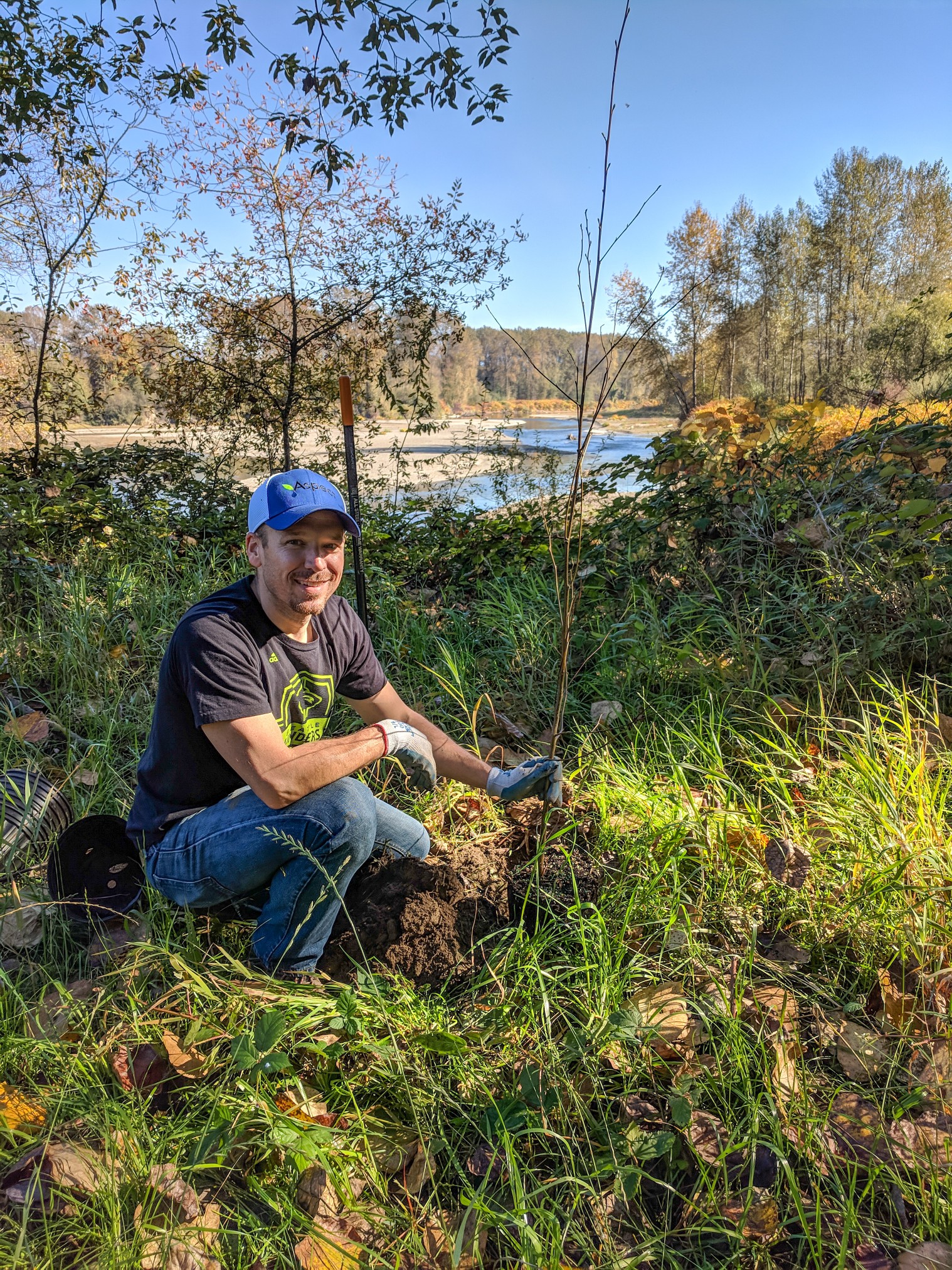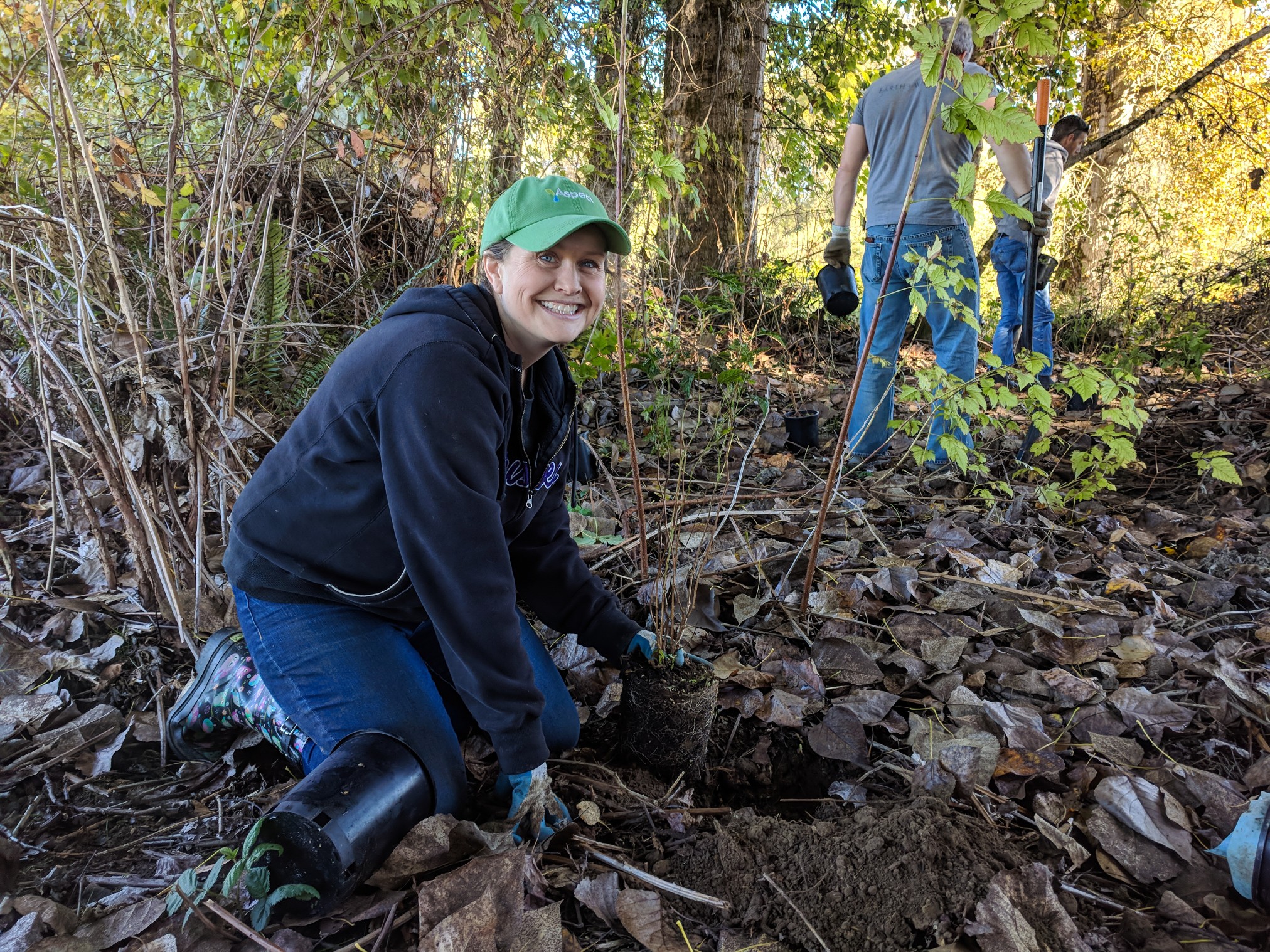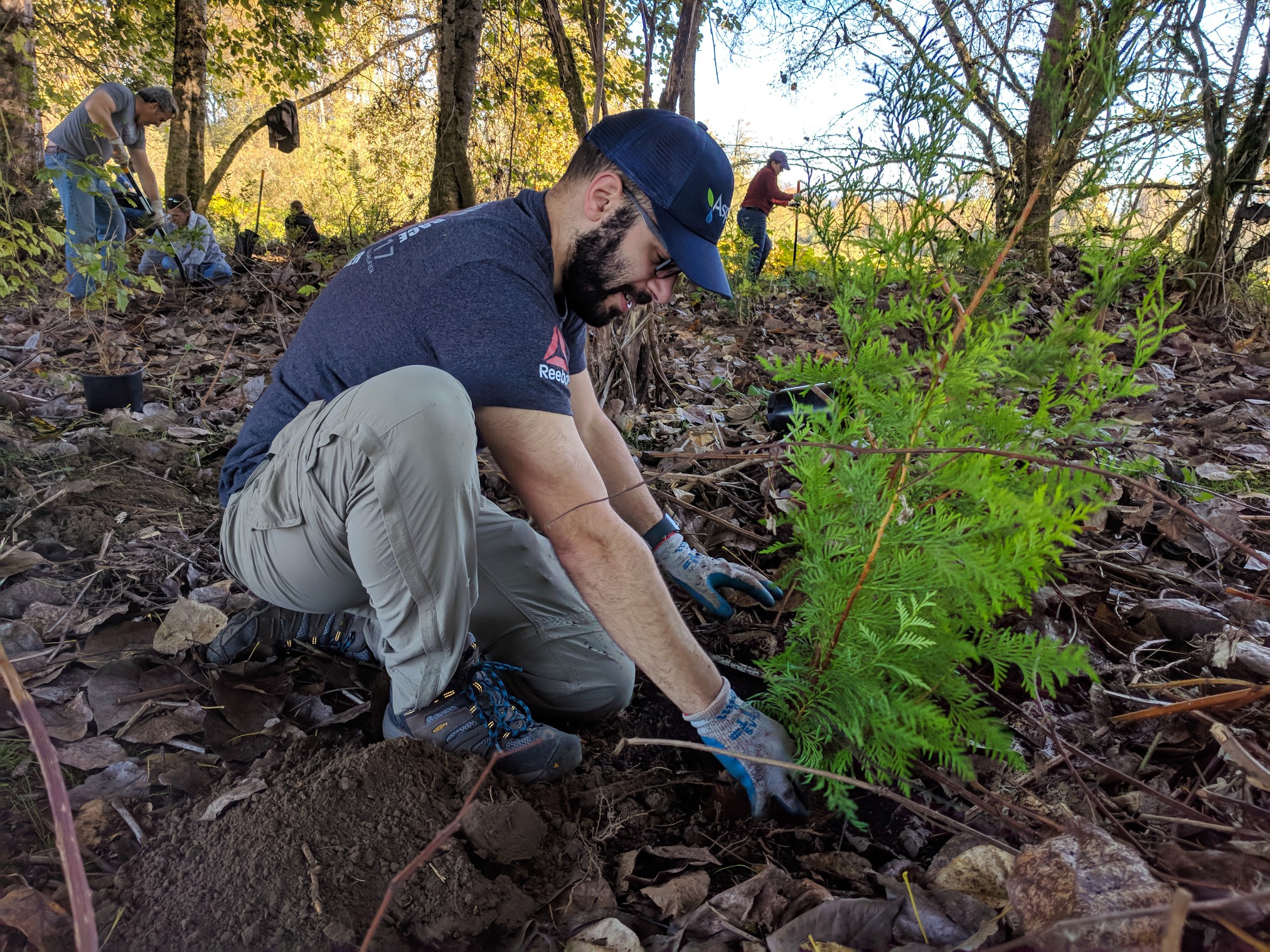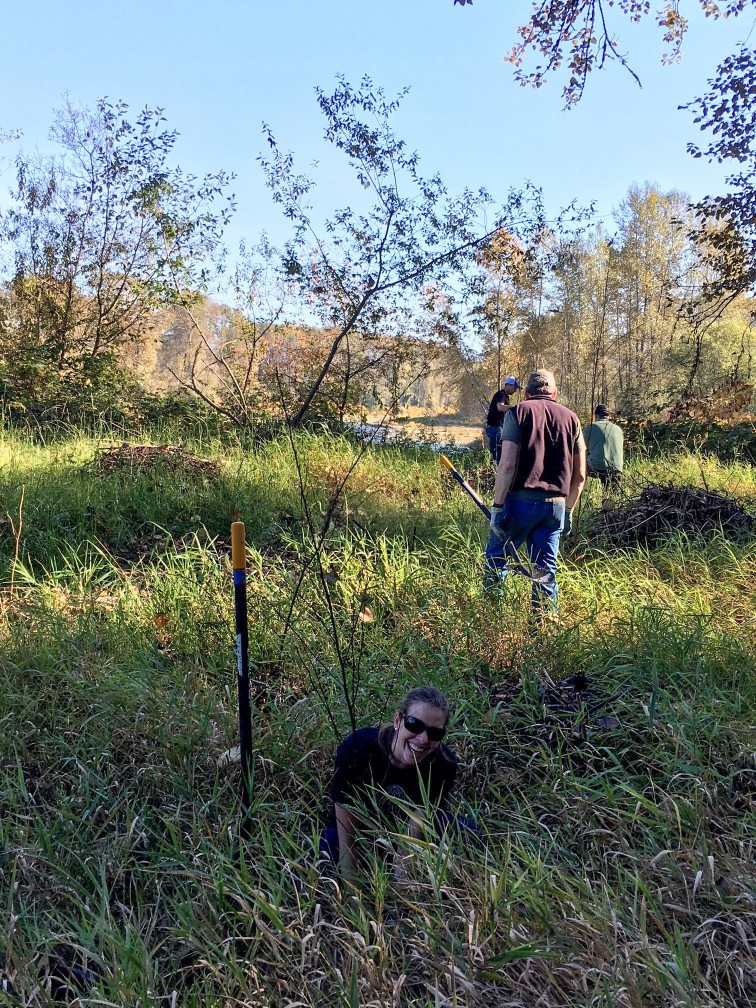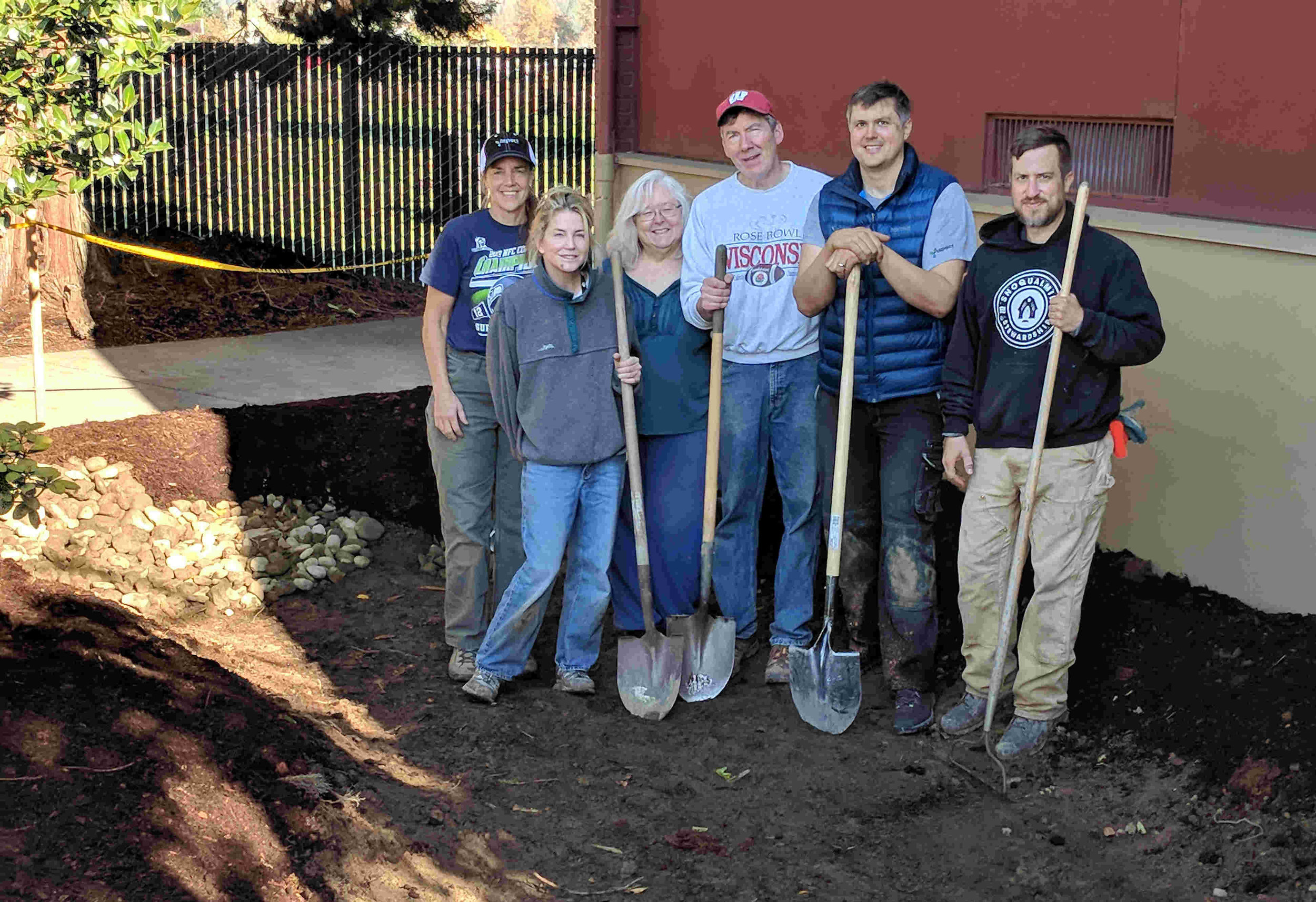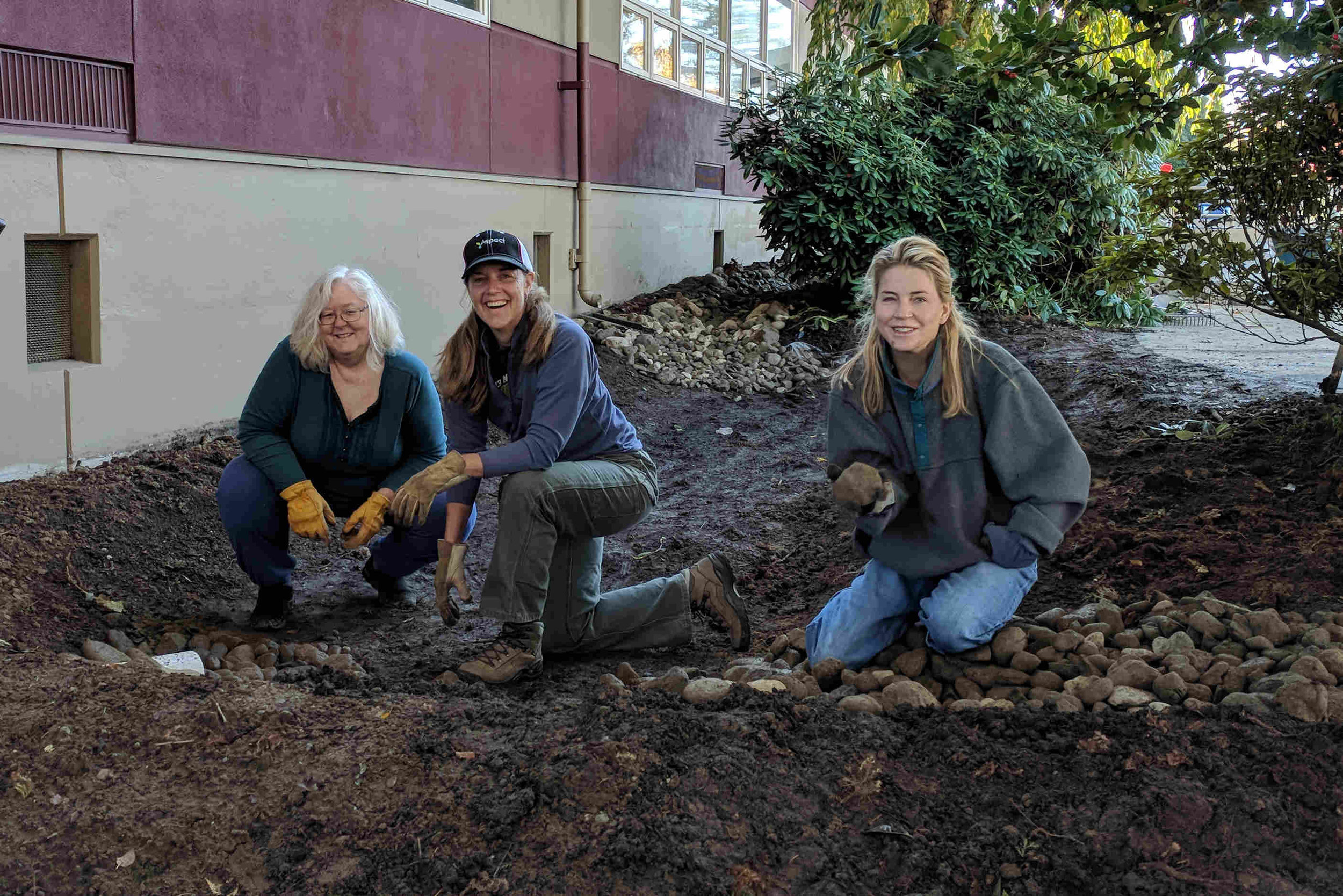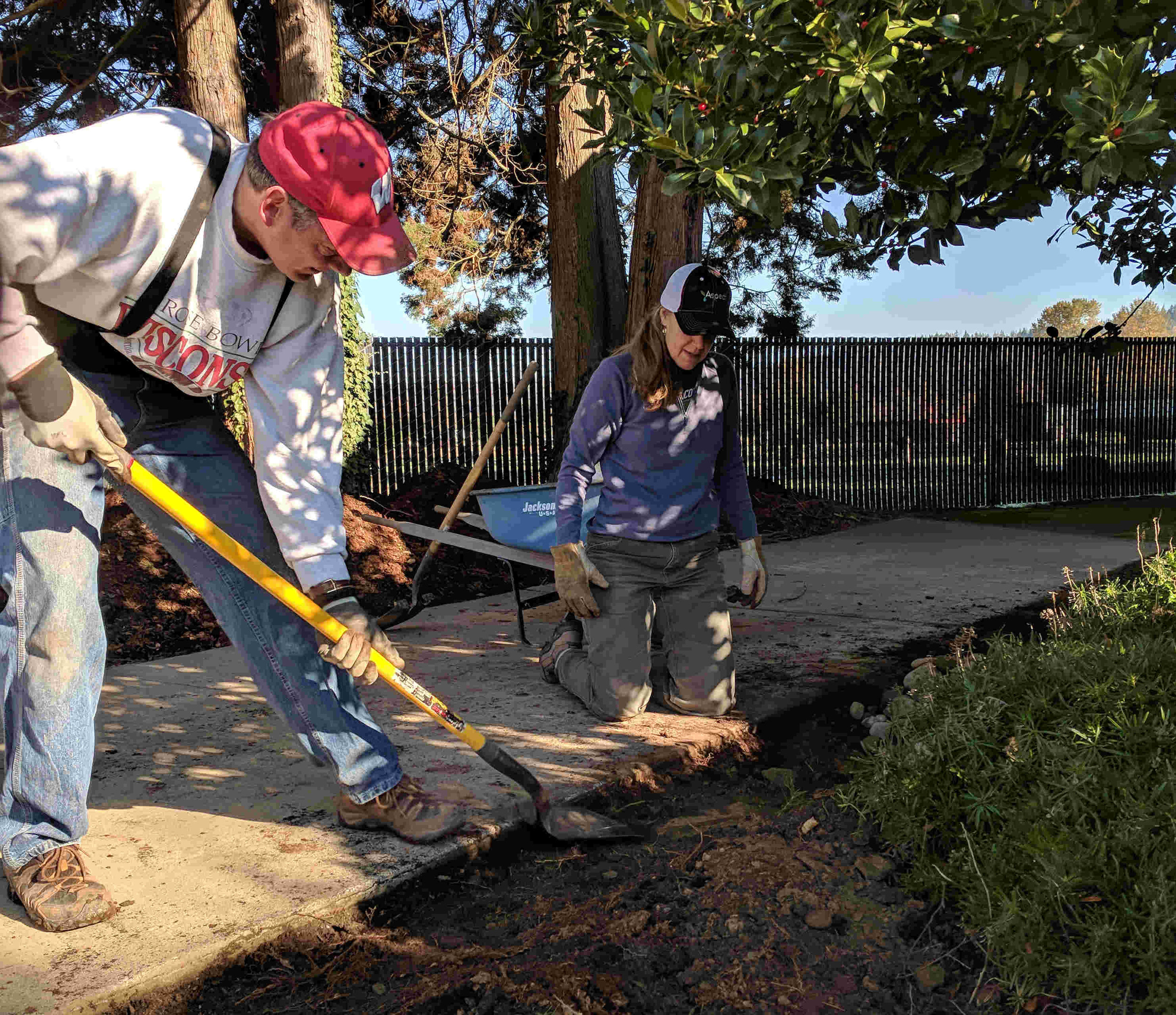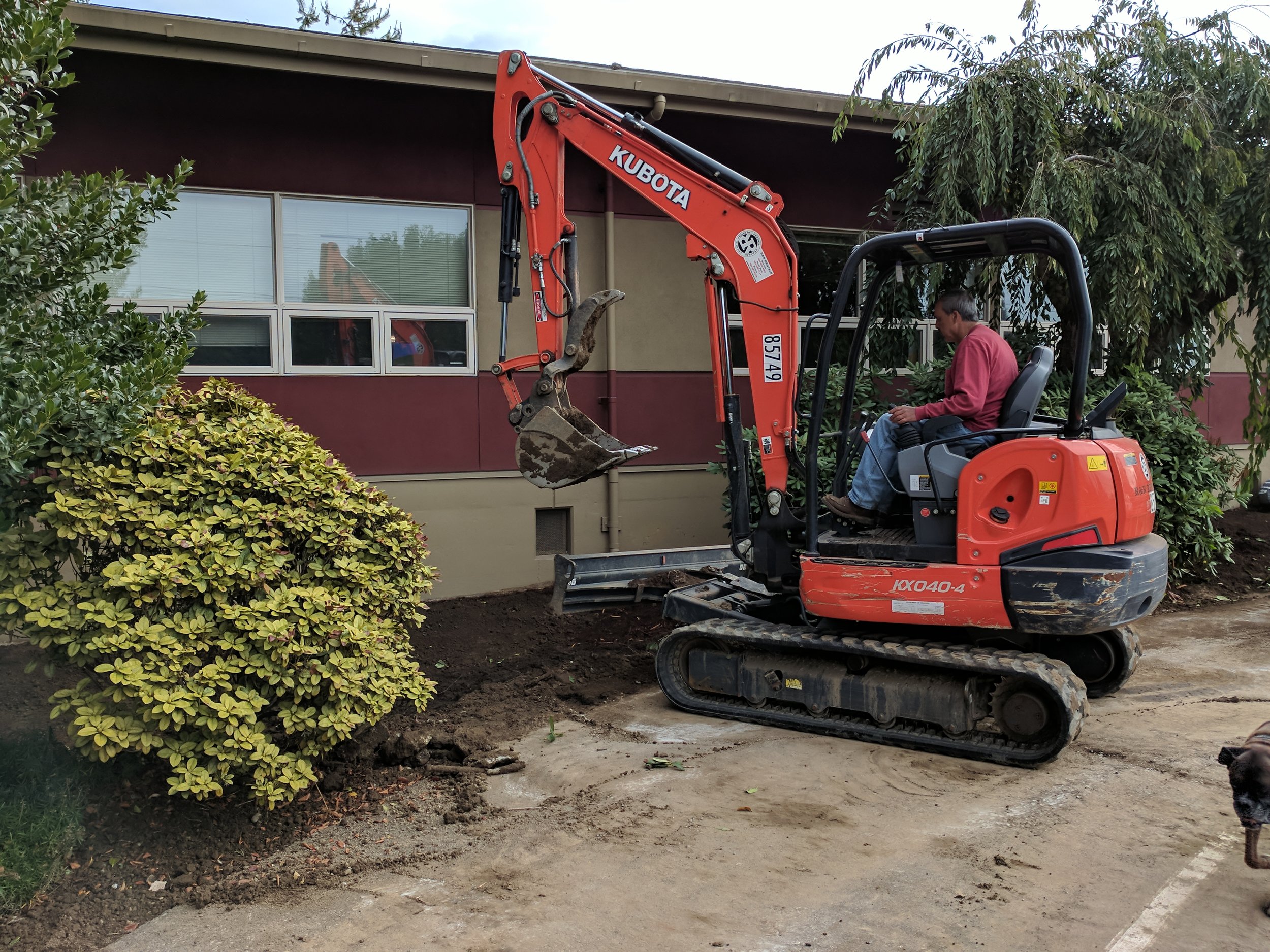Aspect’s Community Team (ACT) was created in 2017 to engage more non-profits and Aspect staff in philanthropy. Aspect employees co-lead the group and focus on organizing yearly volunteering events where staff give time, resources, and technical expertise. These investments take many forms:
Participating in ecological restoration projects
Speaking at a TYEE STEM Club meeting
Advocating for science and engineering careers to students and educators
Through a bottom-to-top decision-making approach, ACT gives a platform for all staff to voice how Aspect should be investing in the community. With how much the pandemic changed the education landscape, ACT put STEAM (Science, Technology, Engineering, Art, and Math) outreach at the top of its 2021 priority list. Members wanted to use their skills to help students and educators who may feel overwhelmed with virtual learning.
Photo Credit: 2021 EarthGen Virtual Student Summit
Holding a Mirror Up to Budding STEAM Leaders
“Before we even crafted our first resume, many of us were already asked the big question: What do you want to be when you grow up? When you’re young, it can be challenging to find the answer simply because you haven’t figured it out yet. Hearing from professionals opens new worlds to students, especially marginalized identities. ”
In alignment with ACT's mission to increase community involvement through education outreach, Aspect volunteers collaborated with EarthGen (formerly WA Green Schools) and participated as guest speakers at the Annual Clark County Virtual Student Summit career panel to elementary – high school-age students as well as educators learning science concepts. ACT volunteers include all Aspect career levels, genders, and ethnicities to reflect the diversity in STEM—they serve as mirrors for potentially underrepresented students who need role models to look up to.
In addition to providing valuable insight into the technical side of their professions, Aspect volunteers also shared stories of their career path. Some prepared informational videos while others led live presentations on ZOOM to show pictures of cool projects they’ve worked on, discuss their college journey, and even play games to introduce important environmental concepts.
EarthGen’s Curriculum Helps Future Scientists and Engineers
The Virtual Student Summit was just one of many parts that make up EarthGen’s programs. The non-profit organization aims to support youth, educators, and their communities that may have limited access to quality instruction, extended learning opportunities, and funding. Some of their science-based, action-oriented programs include professional development training for teachers and their Stormwater Stewards environmental science unit for middle and high schoolers. Read more about the important work they do here and go HERE to donate (tax-deductible).
“Speaking to kids was initially more intimidating. They were silent during our talk, so it was difficult to have any idea of how anything we were saying was being received. It took some gentle encouragement, but once we got them participating in the chat they were a very insightful audience and I felt encouraged for these future STEAM careers.”
“At the core I believe, and some research has certainly shown, that for children to see a ‘real life’ scientist or STEAM professional, particularly a woman of color, has a huge impact on how they see their futures and potential and that in others. So that is the foundation that drives me. In addition, I love to share about how incredible our earth is. Lots of young people don’t realize that geology or earth science or even environmental science are robust fields that they can enter.”
“In the midst of a challenging and isolating year, it was crucial for students to have the opportunity to gather virtually, learn together, and connect over their shared interest of taking environmental action. EarthGen’s 2020-21 Annual Clark County Student Summit had professionals provide inspiration, knowledge and excitement for the students. It allowed students to understand that there are many careers that benefit the environment.”
Other ACT 2021 Highlights
Back in April, ACT leadership mailed out native wildflower seeds to green-thumbed staff looking for a spring project, hosted a friendly "who can pick-up the most trash?" contest, and coordinated a virtual happy hour in celebration of Earth Day.
Then in October, upholding the community team’s fall tradition of restoring a riparian area along the Snoqualmie River, ACT partnered with Stewardship Partners to organize an in-person volunteer experience at Carnation Farms.
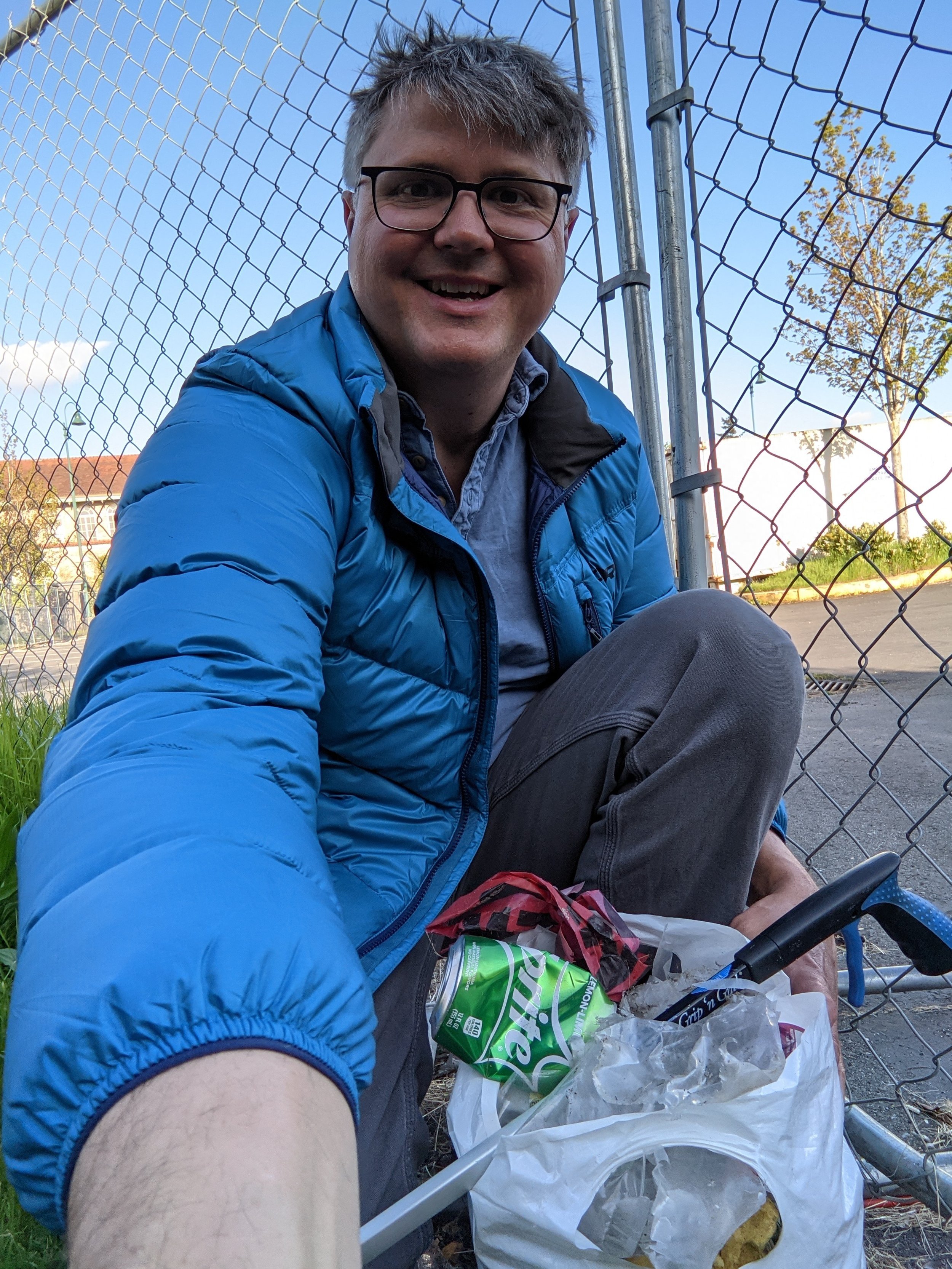
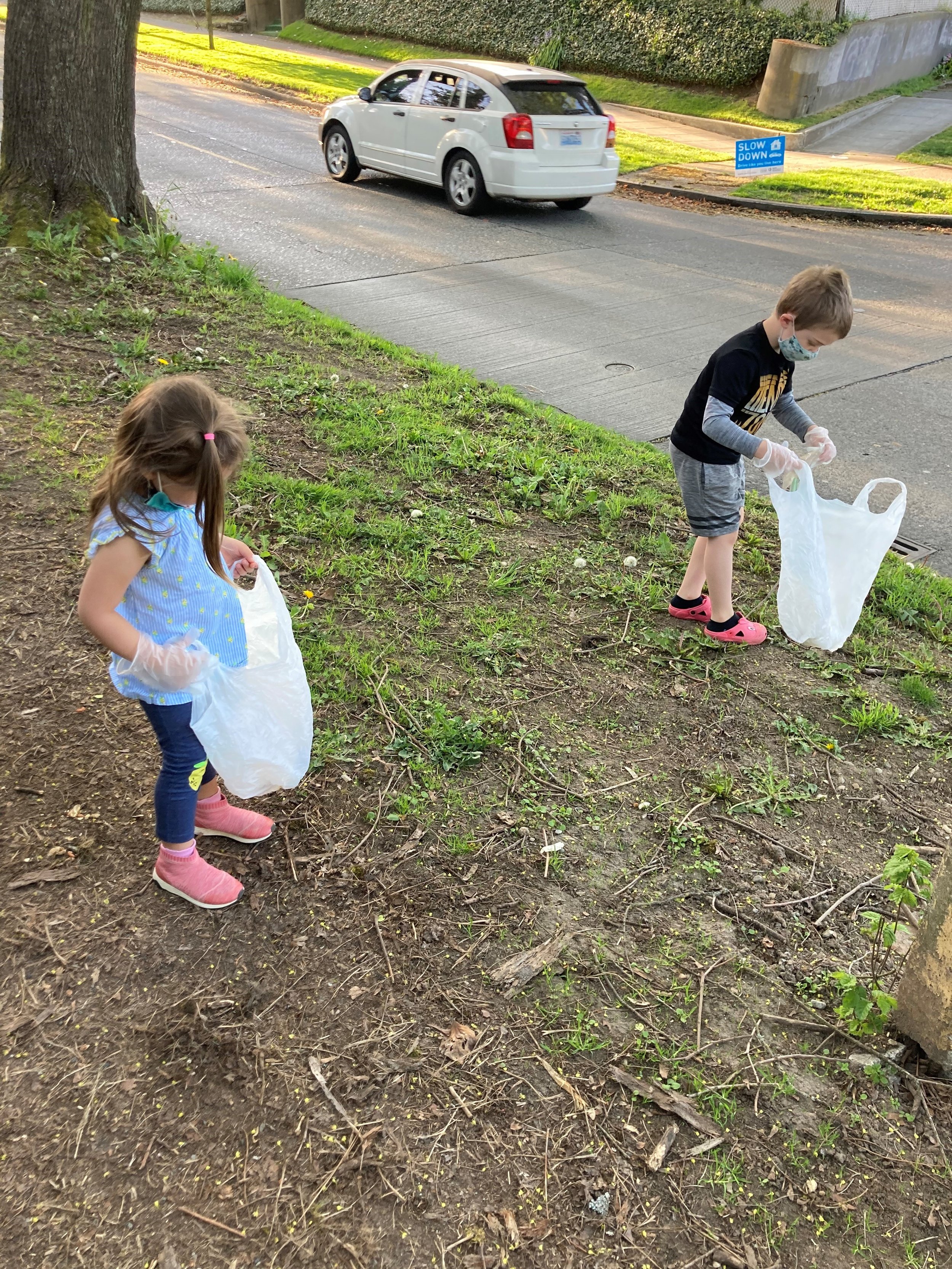
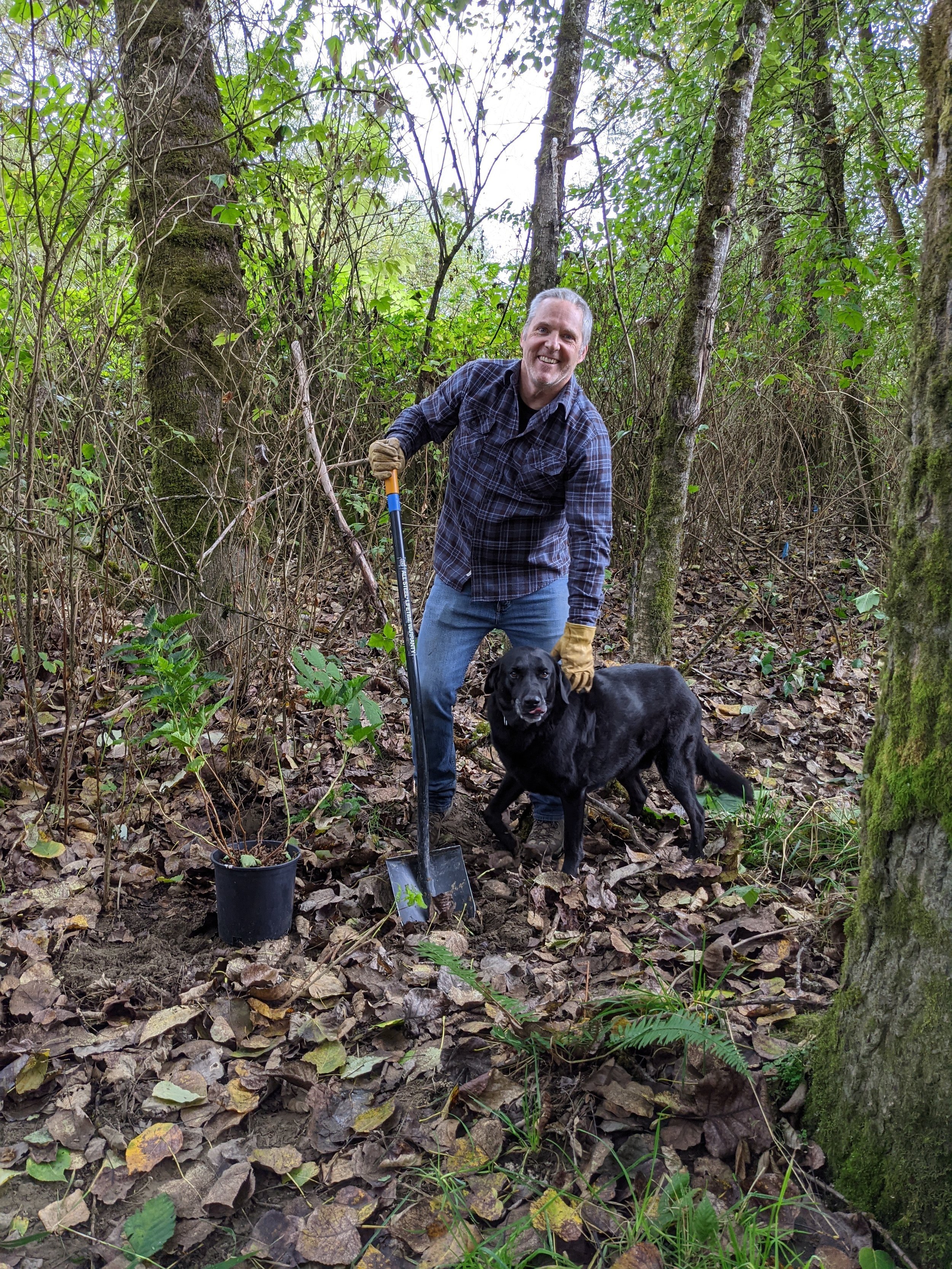
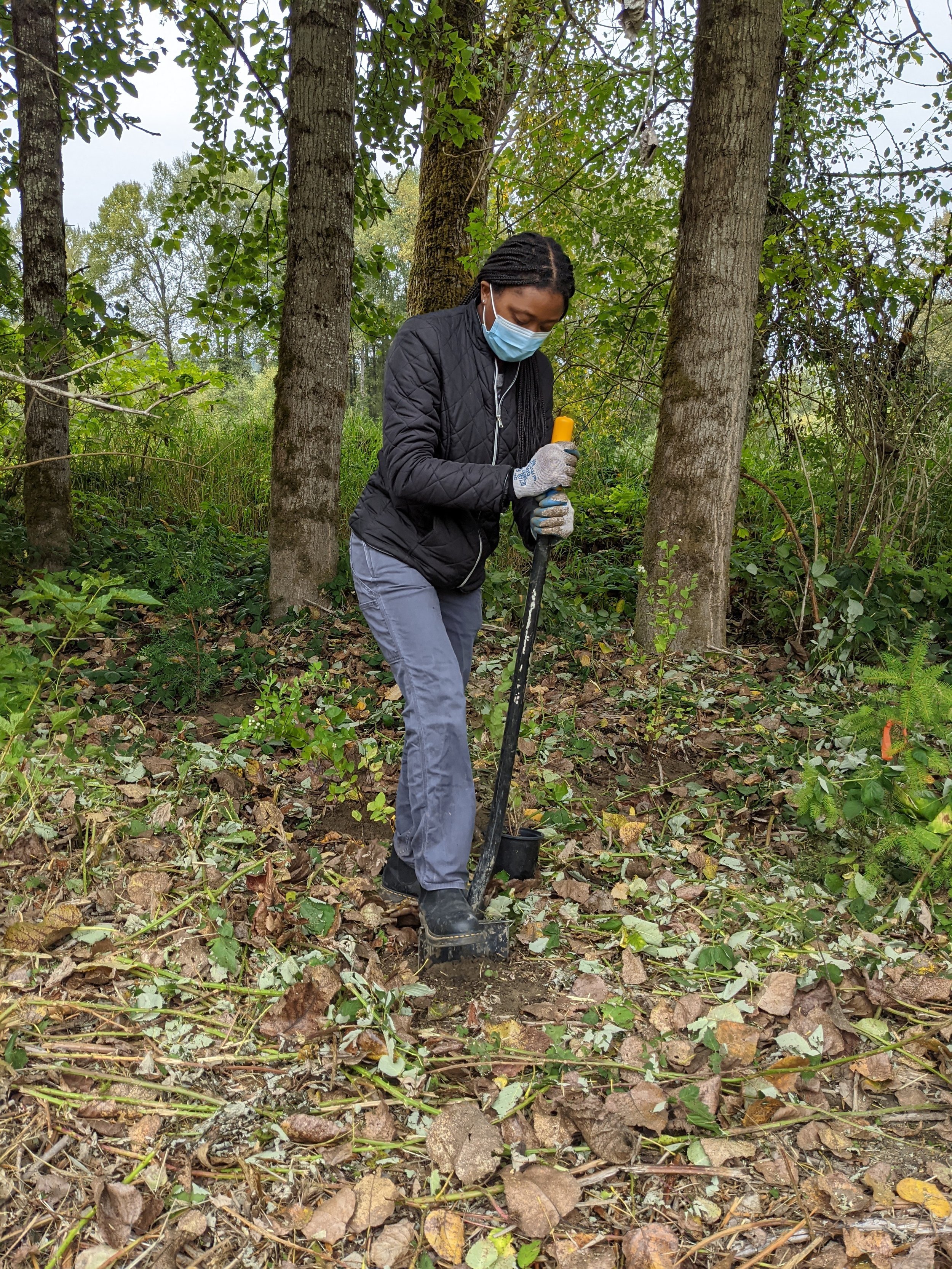
Got an Idea for ACT?
Would you like scientists and engineers to work with your non-profit group? Please contact Cleo Pineda and Lisa Maeda to learn more.



